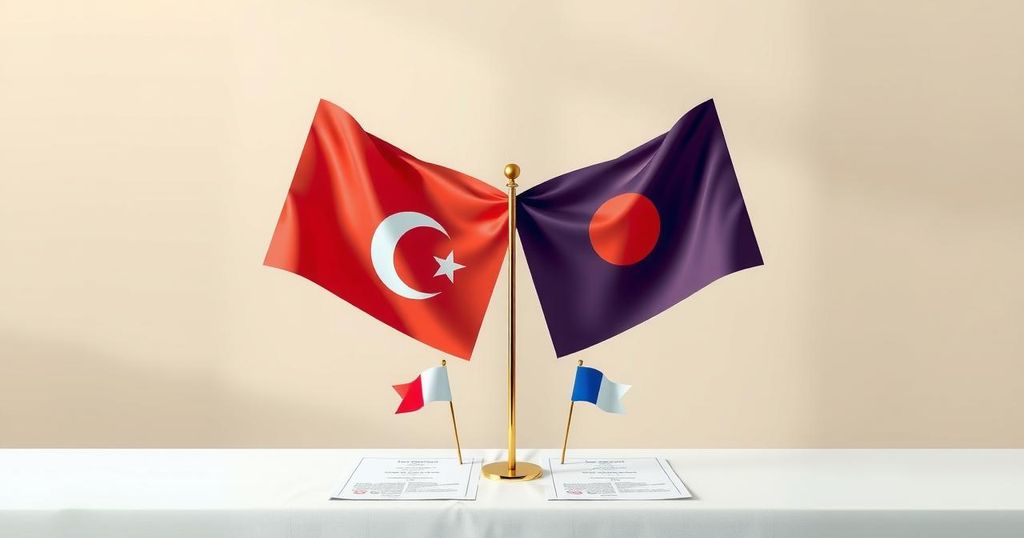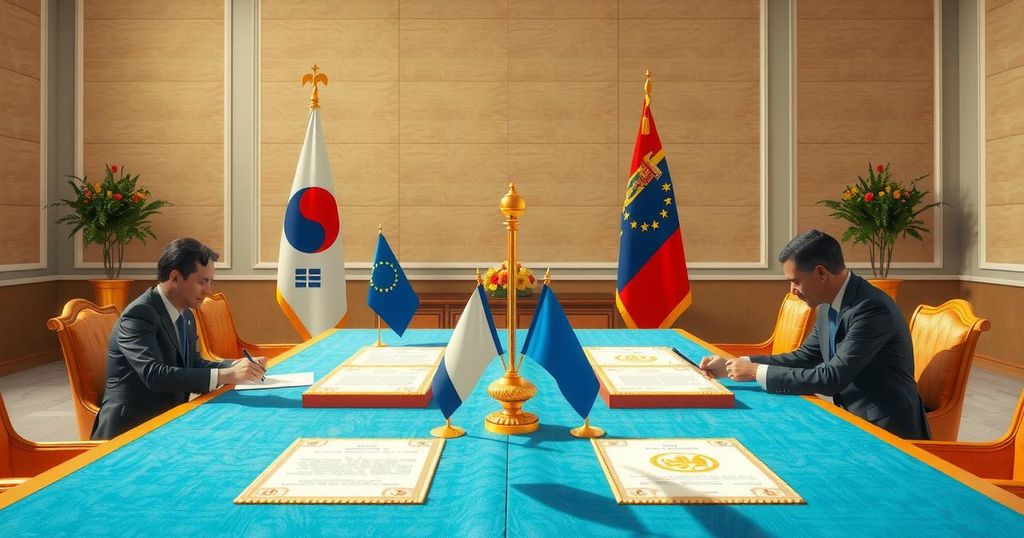Global news
ABBAS ARAGHCHI, AL JAZEERA, ASIA, ASSAD, BASHAR AL - ASSAD, CONFLICT, EUROPE, EUROPE/ASIA, FIGHTER JETS, FOREIGN POLICY, HAYAT TAHRIR AL - SHAM, HTS, IRAN, JAMES BAYS, RUSSIA, SERGEI LAVROV, SYRIA, SYRIAN CIVIL WAR, SYRIAN CONFLICT, TURKEY, UKRAINE, UN SECURITY COUNCIL, WAR
Marcus Li
0 Comments
The Fall of Damascus: Shifting Power Dynamics in the Syrian Conflict
The fall of Damascus has diminished the influence of Russia and Iran while elevating Turkey’s position as a potential key influencer in Syria’s future governance. Attempts at diplomacy prior to the fall were rendered ineffective, highlighting the fragility of Assad’s regime and the shifting balance of power among external powers involved in the conflict.
As Damascus succumbed to opposition forces, both Russia and Iran found their diplomatic abilities severely compromised. Diplomatic meetings held in Doha just hours before the fall attempted to assert control over the evolving situation, advocating for an end to hostilities in Syria and a political dialogue between the regime and opposition. However, reports indicated that Syrian President Bashar al-Assad remained obstinate, rejecting negotiations with Turkey, the primary foreign adversary to his government. In light of the rapid changes in the battlefield, diplomats were left grappling with their diminished influence.
The situation reached a dramatic climax as Russian Foreign Minister Sergei Lavrov faced challenging questions regarding Russia’s involvement over the past decade. During a public forum, he awkwardly deflected inquiries about the prospects for a future under Assad, revealing his irritation and desperation for a shift in discussion to more favorable subjects such as Ukraine. Meanwhile, he reiterated the need to prevent terrorist groups from taking control, despite the reality that insurgent forces had made significant gains, including their advance towards the capital.
Simultaneously, Iranian officials such as Foreign Minister Abbas Araghchi expressed a desire for Assad to maintain his position, though their previous efforts to rally support from Iraq for Assad’s regime had failed. The potential loss of Assad would signify a significant setback in Iran’s regional strategy, halting their land access to Lebanon and reinforcing the instability that could spread in the area. In contrast, Turkish officials, perceiving an opportunity in the chaos, positioned Turkey as a key player in crafting a prospective government for Syria’s future.
With the shifting alliances and power dynamics, the geopolitical landscape in Syria is poised for transformation. Turkey, with its control over armed factions within the Syrian National Army, stands ready to influence the direction of governance in a post-Assad Syria, potentially paving the way for a new political order. This shift highlights the vulnerabilities of both Russia and Iran as they grapple with the unexpected turn of events, questioning their long-term strategies in the region.
The situation in Syria has long been characterized by a complex web of international influence and conflict, with major powers like Russia, Iran, and Turkey vying for control and support. The fall of Damascus to opposition forces marked a pivotal moment not only for the Assad regime but also for the interests of these external powers, who have been engaged in diplomatic efforts to stabilize the region. The relationship among these countries, particularly their diplomatic standings, has become increasingly critical as they navigate the shifting alliances and the likelihood of a new government emerging in Syria post-conflict. This backdrop sets the stage for understanding the rapid changes occurring in this geopolitical conflict.
In conclusion, the fall of Damascus signifies a crucial turning point in the Syrian conflict, severely undermining both Russian and Iranian influence while elevating Turkey’s position as a potential stabilizer in the region. The ongoing negotiations and the actions of external powers will be instrumental in determining the future political landscape of Syria. Turkey’s strategic capabilities may offer a pathway toward a new governance structure, which could redefine the balance of power in the Middle East and alter the long-standing dynamics of Syrian relations.
Original Source: www.theguardian.com



Post Comment